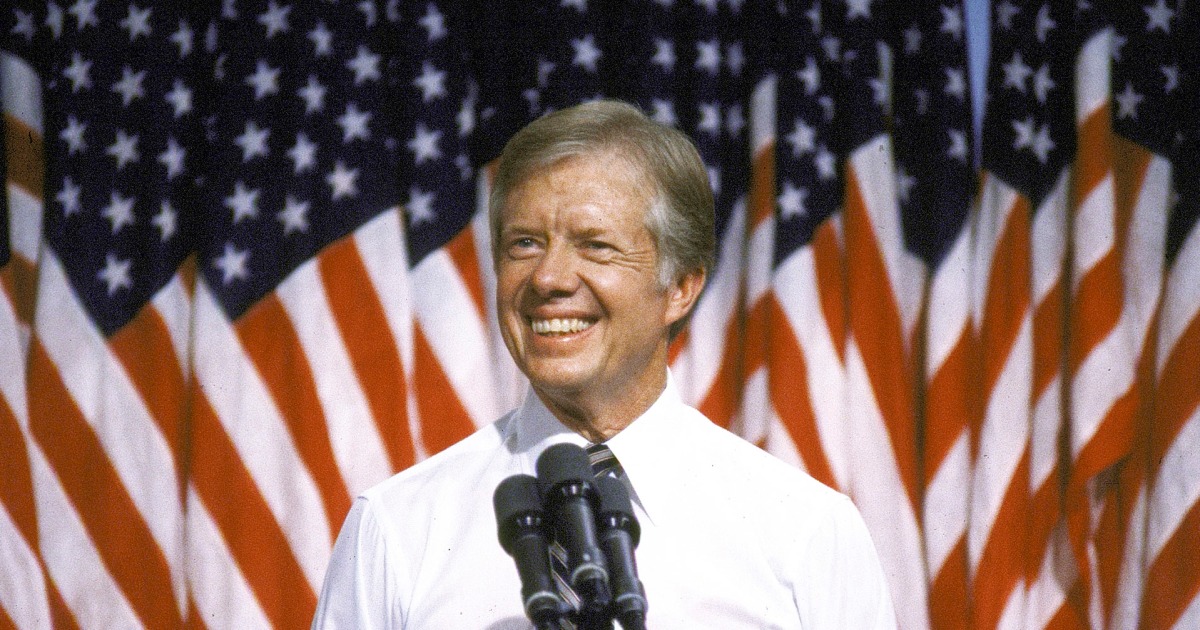Jimmy Carter's single term presidency, while marked by significant foreign policy initiatives that historians credit with contributing to the Soviet Union's collapse, also faced considerable domestic challenges, including an energy crisis and a perceived lack of leadership that ultimately led to his defeat in 1980. His administration's approach to human rights put pressure on Moscow, and strong support for the Solidarity movement in Poland is seen as having fueled anti-communist sentiment in Eastern Europe.
Despite these foreign policy successes, Carter's domestic agenda struggled to gain traction. Characterized by some as a micromanager, his efforts to address economic recession and energy shortages were often met with public apathy. A televised address in 1979, where he identified a "crisis of confidence," was widely criticized and dubbed the "malaise" speech, despite the fact that he never used the word "malaise". This image contrasted sharply with Ronald Reagan's optimistic vision, who would go on to win the 1980 presidential election by a landslide.
Further complicating Carter's presidency was his decision to boycott the 1980 Moscow Olympics in protest of the Soviet invasion of Afghanistan. This move, while popular at home, remains controversial, with some historians viewing it as a missed opportunity for improved relations, and others believing it intensified Soviet repression leading up to the fall of the Berlin Wall.
The Iran hostage crisis, which began in late 1979, became a defining challenge of Carter's final year in office. The crisis was initiated after Iranian students seized the U.S. embassy in Tehran, holding more than 60 Americans captive. A failed rescue attempt in April 1980, resulting in the death of eight U.S. service members, further undermined Carter's perceived leadership.
The failed rescue effort prompted Iranian leaders to scatter the hostages, and the crisis further fueled anti-American sentiment. An official investigation into the mission found serious deficiencies in planning and communication among the U.S. military branches, contributing to the perception of Carter as an ineffective leader. The hostages were held captive for 444 days, until being released on the day of Reagan's inauguration.
From Naval Officer to Georgia Governor: A Path to the Presidency
James Earl Carter Jr.'s journey to the White House began in Plains, Georgia, where he grew up on a peanut farm. His early life was marked by academic success, leading to his appointment to the U.S. Naval Academy. He became a submariner and worked under Admiral Hyman Rickover, a key figure in the development of the U.S. nuclear submarine program, who recognized Carter’s potential. He eventually became a senior officer on the USS Seawolf.
Following his father's death in 1953, Carter left the Navy to manage the family business. This transition marked the beginning of his foray into politics. He became an advocate for civil rights in his local community and served on the Sumter County School Board, before being elected to the state Senate in 1962.
His political career progressed rapidly. Despite initially using divisive language during his gubernatorial campaign in 1970, Carter would later change his approach, actively seeking the support of Black voters, which led to his election as Governor of Georgia.
A "Reformer" Seizes a Presidential Opportunity
After being barred from seeking re-election as governor, Carter capitalized on the disarray of both parties in the wake of the Watergate scandal. He entered the 1976 presidential race as an underdog, initially unknown to the majority of the public.
Carter’s campaign emphasized his integrity, promising voters, "I will never lie to you.” He actively campaigned in minority communities and strategically focused on state primaries and caucuses, ultimately securing the Democratic nomination and the presidency, becoming a symbol of change for a nation seeking to recover from recent political turmoil.







